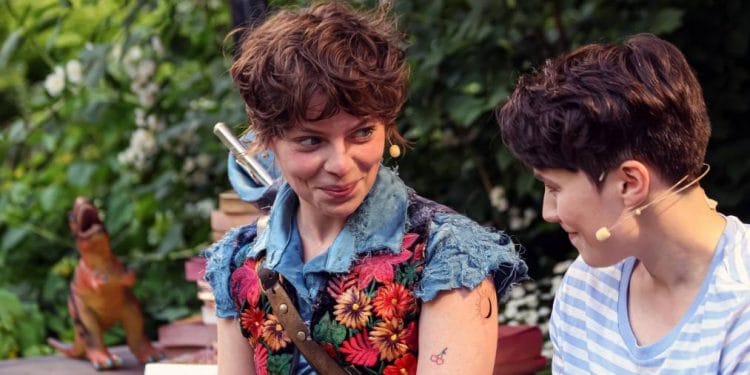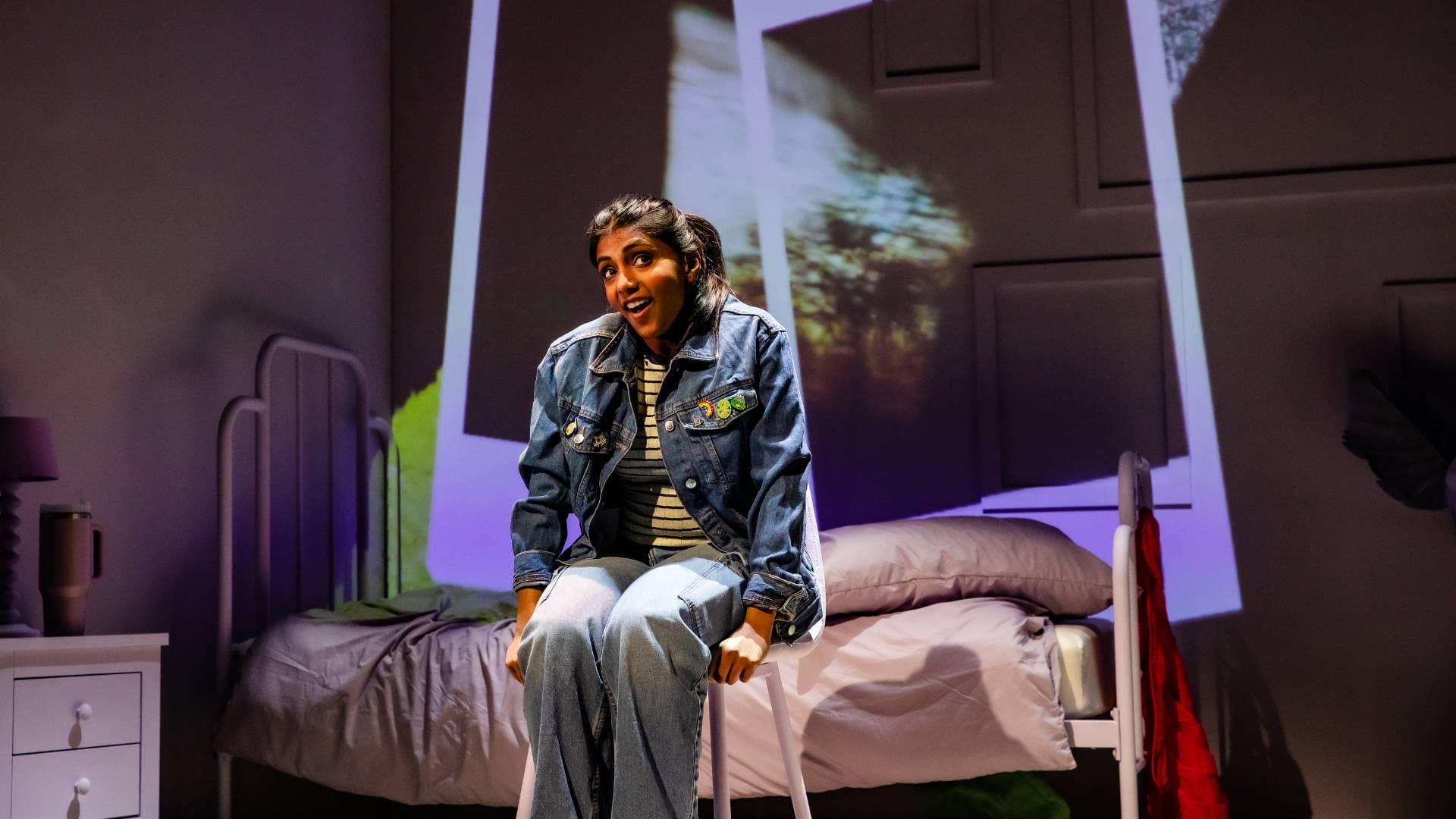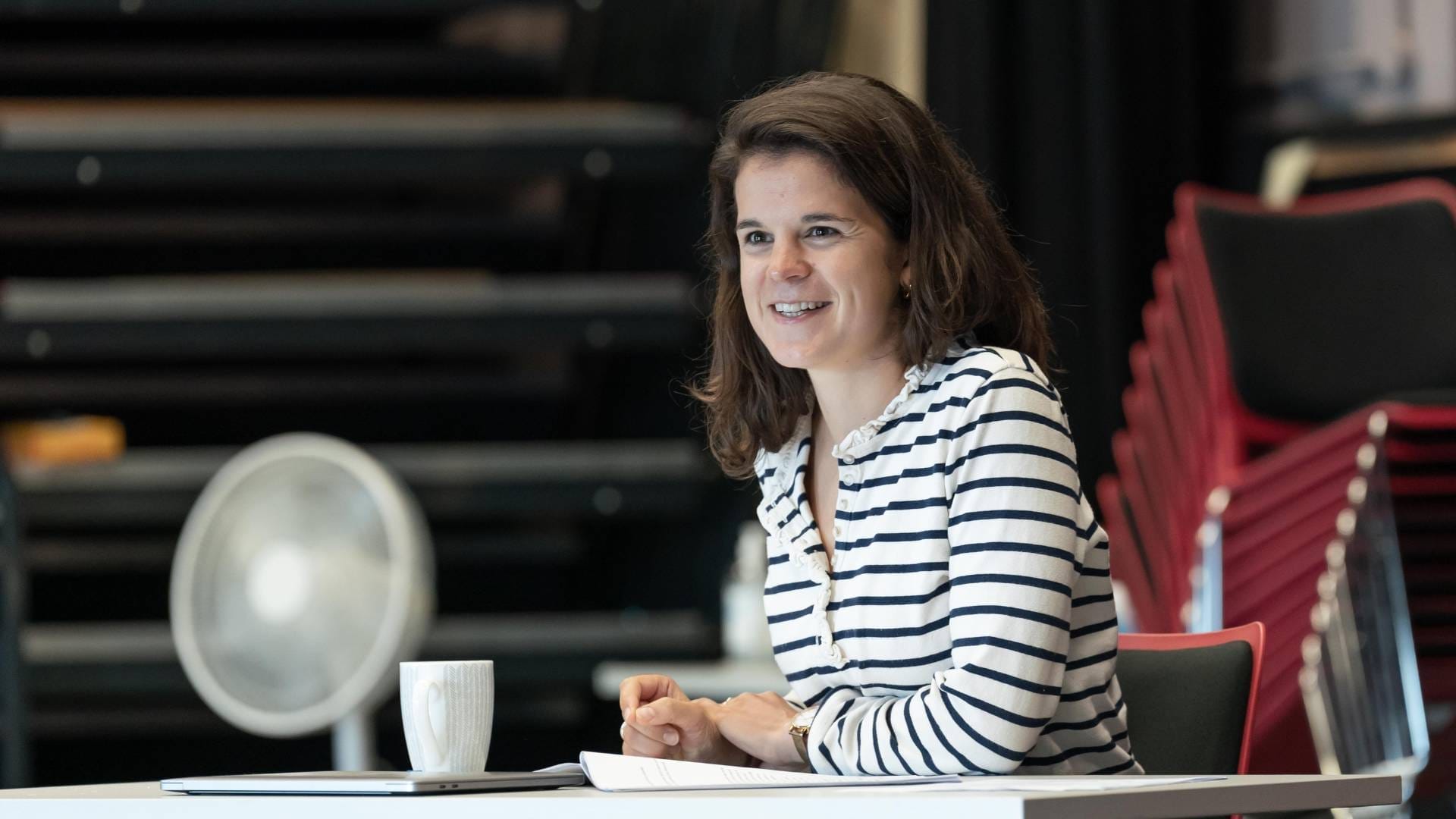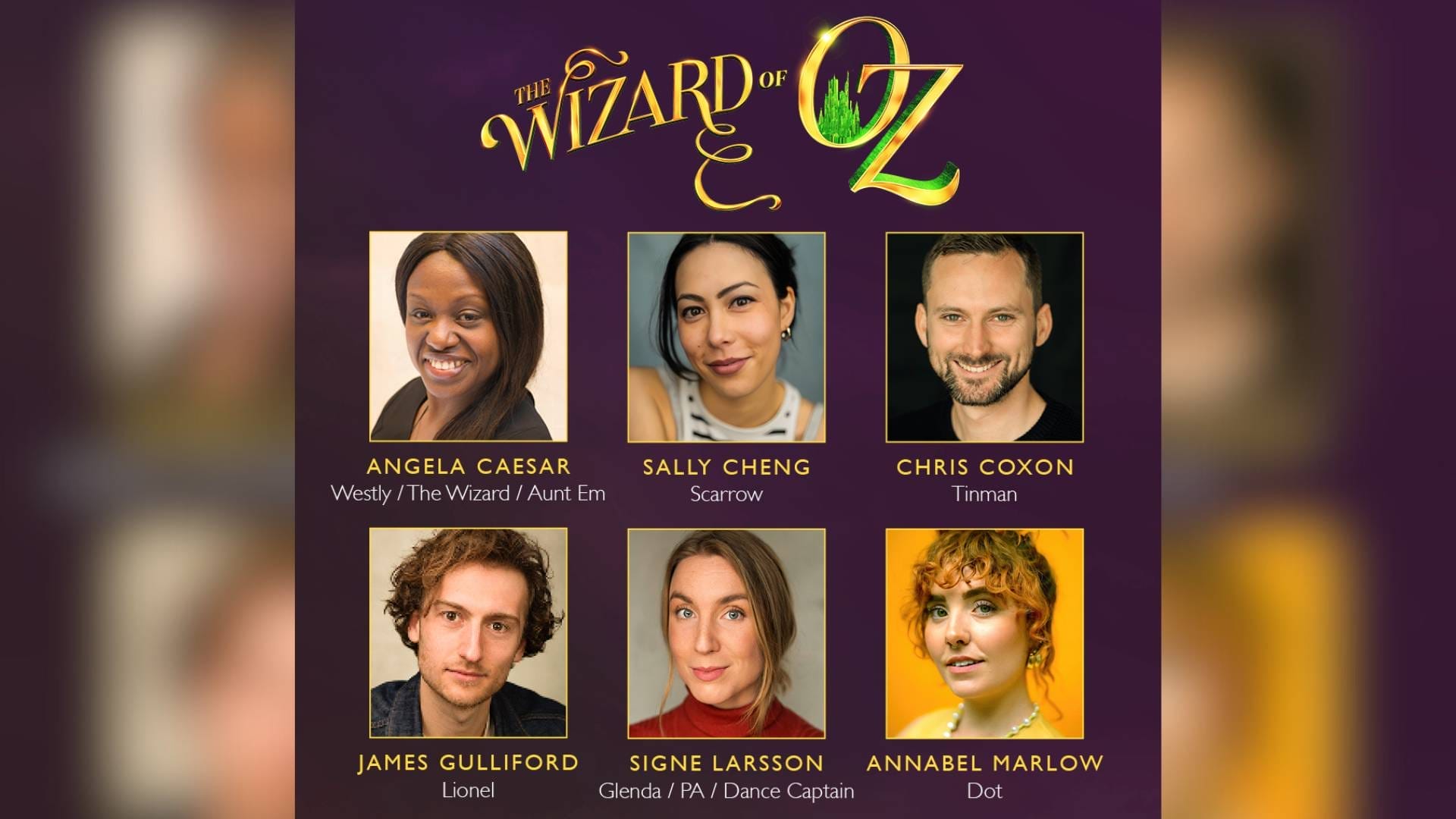 Flux Theatre’s Queen Mab, staged in the beautiful gardens of Iris Theatre (part of St Paul’s Church in Covent Garden), purports to bring you the story of Shakespeare’s 500-year-old faerie as she becomes entwined with a fifteen-year-old in the modern world. Instead, it tells a story stuck in the past, failing entirely to say something new.
Flux Theatre’s Queen Mab, staged in the beautiful gardens of Iris Theatre (part of St Paul’s Church in Covent Garden), purports to bring you the story of Shakespeare’s 500-year-old faerie as she becomes entwined with a fifteen-year-old in the modern world. Instead, it tells a story stuck in the past, failing entirely to say something new.
The story basically follows Freya, a teenage girl dealing with typical teenage problems – squabbling parents, a dorky younger brother and a HUUUGE crush on a boy. In fact, they’re so typical, they become utterly unremarkable. All her problems could’ve walked out of a 1950s novel set in Malory Towers – Is there a teenager in 2021 who would be able to relate to this weirdly naive character?
Queen Mab is slightly more rounded, with a few witty lines that land, but her character evolution – from alien entity, unconcerned with humanity to a caring, human-approximate figure – simply doesn’t capture the imagination.
The dialogue is stunted and old-fashioned, with phrases like ‘git’ and ‘I’m pants at this’ peppered throughout. The whole experience feels like your parents trying to ‘get down with the kids.’ If it wasn’t for the repeated and unnecessary references to the pandemic (quickly forgotten later in the play when one of the characters breaks quarantine without a second thought), I would’ve genuinely assumed the show was set in the 1950s.
The show is woefully tonally jarring, obsessed with interminably long and waif-like monologues about the human condition, self-indulgent off-brand Shakespeare riffs, or manufactured conflict simply to give the characters something to argue about. Some of the writing doesn’t feel entirely original, there’s one particular line about ‘kissing’ being just ‘mashing your eating holes together’ which I’m sure I’ve heard before on an episode of The Good Place.
The actors never feel like they’re fully committed to their roles. Erica Flint, as Queen Mab, prances pixie-like across the stage, a shtick that becomes tired within the first five minutes, and often her dialogue is generalised and rushed. She at least manages to convey some of Mab’s difficulties assimilating to human culture, some vulnerability poking through as she develops a friendship with Freya, played by Jo Patmore.
Patmore sounds sometimes like she’s reading the words from an autocue; the writer cuts her no breaks with the dreadful dialogue, so she can be forgiven for some of the stranger sounding sentences, but there’s constant over-enunciation and a great deal of demonstrating emotion to the audience, rather than conveying it truthfully. The two never find the chemistry needed to sell this burgeoning friendship, and it makes the play (an hour and ten) feel significantly longer.
Still, there are some bright spots. Queen Mab’s stage, a traverse style space set in the gardens of a church, surrounded by books piled high and spray painted many different colours, evokes a lovely sense of wakeful dreaming, while the music largely crafts a sense of wonder and magic. The songs, however, were at best painful to get through, particularly an excessively long serenade near the climax of the play that served no purpose to the narrative whatsoever.
Ultimately, Queen Mab might mildly entertain the older members of your family, but for everyone else, it’s a strange and vapid mishmash of eras, reaching to answer big questions like ‘What is this all for?’ and ‘Why are we here?’ Sadly, I found myself asking the same questions.

















